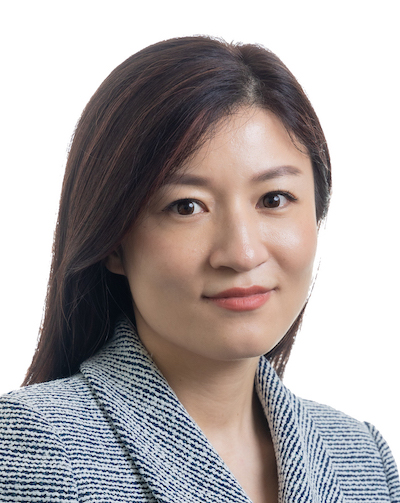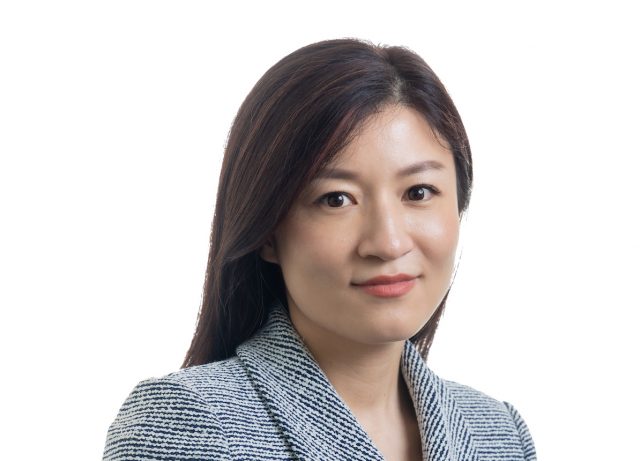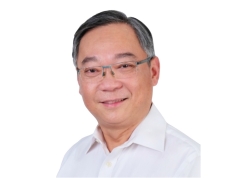FSSA IM Portfolio Manager Sophia Li: Japan – Land of Hidden Gems
Extract of Investment commentary: Fund Manager Q&A on Japan – Land of Hidden GEM by FSSA IM Portfolio Manager Sophia Li (August 2021):
FSSA Investment Managers (FSSA IM) is an autonomous team within First Sentier Investors. FSSA IM are bottom-up investors, using fundamental research and analysis to construct high-conviction portfolios, conducting more than a thousand direct company meetings a year, seeking to identify high quality companies that they can invest in for the long term. FSSA IM manages $38.7 billion globally (30/6/21).
Japan – Land of Hidden Gems

Sophia Li, Portfolio Manager, joined FSSA Investment Managers as a graduate in 2009 and has developed an extensive coverage of companies in North Asia. Sophia manages the team’s Japan equity strategies and is the manager of the FSSA Japan Equity Strategy.
Sophia holds a Master’s degree in Statistics from Harvard University and a Bachelor of Science degree from Fudan University. She is also a CFA charterholder.
1) What are some of the biggest misconceptions about Japan?
Sophia: Strategists often argue that Japan is perhaps the most cyclical market amongst the major global economies, with profits highly correlated to global trade. We disagree. It is true that many of the large index constituents are companies with high overseas exposure or are highly sensitive to forex fluctuations. However, in our view, Japan’s economy is actually very defensive and mainly driven by domestic demand. Japan’s exports account for less than 20% of GDP — far lower than that of Germany or South Korea where more than 40% of GDP is derived from exports.
Another misconception about Japan is that the ageing population and prolonged deflationary environment means that there are few quality companies that can deliver high growth and returns. We disagree with that notion too. Especially from a bottom-up perspective, our viewis that Japan has a deep investment universe with many high-quality companies that are focused on delivering sustainable growth and returns and are uncorrelated to the global macro environment.
2) Why should investors consider Japan?

Sophia: Firstly, in our view, you can find a large number of companies in Japan which have strong global franchises and dominant market share in secular growth industries such as factory automation, machine vision, medical equipment and semiconductors.
Secondly, we see strong Japanese consumer brands benefitting from the favourable demographics in Asia, which accounts for more than 60% of the global population. Not to mention the rising number of middle-income families in Asia with increasing consumption power.
Thirdly, we believe there are even more investment opportunities among the purely domestic Japanese companies. We tend to find hidden gems in the underpenetrated and emerging industries in Japan — such as e-commerce, digital payments and Software-as-a- Service (SaaS). They are often under-researched by the market and our view is that this is what really makes Japan an interesting investment destination.
If you look at the chart below, more than 70% of the listed companies in Japan are covered by only one analyst, or none at all. In addition, if we look at the number of 10-baggers in Japan (defined as stocks that have delivered returns of more than 10 times the amount of its initial investment over the past 10 years) it is second only to India and is far higher than China or other Asian countries. We believe this proves that the market efficiency mechanism has not broken down in the way that people might think.
To us, the investment case for Japan has nothing to do with the macro environment. Rather, we seek to back a set of globally-competitive companies and local domestic disruptors that can win market share from complacent incumbents. As such, we believe Japan is a perfect market for bottom-up active investors like FSSA who have a different, contrarian perspective to deliver active returns.
3) What sets FSSA’s Japan strategy apart from peers?
Sophia: First of all, as we adopt a benchmark agnostic investment philosophy, our strategy usually has a high active share, ranging historically between 70% to 90%. In addition, we define risk as the permanent loss of capital, rather than deviation from the benchmark or short-term volatility of stock performance.
As bottom-up investors, the FSSA Japan strategy is built company by company, from the bottom up and with little regard for index positioning. This results in a focused portfolio of around 40 to 45 high-conviction stocks. As a team, FSSA believes that what we don’t own is just as important as what we do own. As such, we do not invest in industries that cause direct harm to society or the environment. Nor have we invested in companies with structural problems, or companies that are driven purely by global macro cycles.
We are long-term investors and have an investment horizon of around three-to-five years, if not more. Our investment philosophy is to identify high-quality companies that can deliver sustainable investment returns and growth that is uncorrelated with the macro environment. Once we have built sufficient conviction, we aim to buy them at sensible prices and hold for the long term.
4) How does a stock make it into the portfolio?
Sophia: We evaluate companies based on three aspects: the quality of its franchise and management, and sustainability of growth.
Firstly, in terms of the franchise, we look for companies that have a dominant market share in niche industries that can gradually make inroads into associated markets.
In addition, we prefer companies that adopt an asset-light business model, which in our view is a key factor in delivering high return on invested capital (ROIC) and strong earnings resilience during an economic downturn. We also prefer to invest in companies that have a continued ability to innovate, so that they can disrupt the industry incumbents and win market share.
In terms of management, in Japan we look for distinctive leaders, rather than those with typical management characteristics. Conventional Japanese corporates usually have a slow and stubborn corporate culture, where promotion is based on seniority and an employee’s ability to conform, rather than their actual performance.
In our view, this may partially explain why their corporate performance has been struggling since the economic bubble burst. Instead, we back management who are open-minded and motivated, who have a speedy decision-making process and can rectify mistakes quickly, and can adjust their strategy according to the fast-changing external environment.
Lastly, we focus on the sustainability of a company’s growth. We try to identify structural trends in Japanese corporate and consumer behaviour, and look for the best investment opportunities that we believe should most benefit from those secular drivers. We look for innovative companies, in terms of business models or new product launches, as this helps them gain market share from incumbents. This is especially important because Japan is already a mature economy where most industries are quite saturated. We also like defensive and sticky business models that can generate revenue on a recurring basis.
5) The Japan equity market has been quite volatile in recent months. How do you manage against these risks in the portfolio?
Sophia: We do not see short-term market volatility as a kind of risk. Instead, we define risk as the permanent loss of client capital — and to protect against that risk, we believe the most important thing we can do is maintain the discipline to stick to our rigorous bottom-up stock selection process.
Recent market volatility has been driven in part by concerns about global inflation. For companies to make it into our portfolio, we require them to have a dominant franchise or strong pricing power, so they should continue to perform well even in a high inflation environment. We also require businesses to be highly defensive, with the ability to produce medium-to-long-term secular growth.
The portfolio is invested in a combination of both domestic Japanese companies and Japanese companies with global franchises (those with high overseas exposure). The global companies should perform well in a global recovery, while the purely domestic companies should be able to deliver sustainable earnings growth and remain resilient during an economic downturn.
6) How does the team define overvalued? Are there any examples where you have divested based on valuations?
Sophia: We conduct a fair market value (FMV) exercise for each company in our portfolio (including those on our watch list), calculating the annualised return and dividends on a three-to-five year basis. As a rule of thumb, we require more than a double digit return to invest in a company — and for those that comes with higher risk, we would require even higher returns to compensate. If a business generates a negative return in our FMV calculations, we consider it to be overvalued.
We used to own a company called Hoshizaki Electric, a domestic leader in commercial fridges and freezers for restaurants in Japan. When we invested in the company, it had only limited sell-side coverage. The valuation was reasonable at about 20x price-to-earnings (P/E) ratio.
However, over the years it re-rated far more quickly than its earnings growth, and after conducting more detailed due diligence, we found that the company did not have much substance to its overseas expansion story. There were also some concerns with the new management. As a result, we completely disposed of the stock not long after.
7) Did the Covid-19 sell-off last year present any good accumulation opportunities for the portfolio?
Sophia: With hindsight, the market crash early last year did indeed present great opportunities for global investors to buy companies in Japan. We picked up mainly two types of companies.
The first was what we believed to be Covid beneficiaries — not just temporarily, but goods and services that should benefit from the structural changes brought forward by the pandemic. For example, Japanese consumers and corporates can be quite conservative, and the pandemic had accelerated the digitalisation of their behaviours. Beneficiaries of this changing behaviour included companies in the digital payments
(GMO Payment Gateway), e-commerce (M3 and Shift) and Software-as-a-Service (Rakus) sectors.
The other type of companies were the ones that we believed would be affected by the pandemic in the short term (in terms of their valuation) but, given their strong franchises, should be able to rebound in the next one or two quarters. Examples include Recruit Holdings, which we believed should benefit from the economy re-opening, and a hidden gem called Kotobuki Spirits, which sells souvenir sweets mainly to domestic and inbound tourists in Japan.
Kotobuki Spirits generated decent return-on-equity (ROE) and profit margins even before the pandemic. We believe after the pandemic is over, both margins and ROE should improve due to a series of cost reduction activities over the past 12 months. We also believe they are well prepared for demand to recover post the pandemic.
8) Do you see any opportunities in the small- to mid-cap segment?
Sophia: In our view, there are quite a lot of opportunities in this space, mainly because of the lack of analyst coverage. These smaller companies tend to have slightly higher price volatility in the short term, given the higher participation from retail investors. However, we believe that in the long run they can generate good returns for global investors.
Every year we host around 250 to 300 meetings with companies and more than half of them are with new companies. Hence, we are quite optimistic about the opportunity set in the small- to mid-cap sector.
9) Do you see any opportunities in the Electric Vehicle (EV) market in Japan?
Sophia: We have been looking for investment opportunities in the Electric Vehicle (EV) sector for about four years, but have struggled to find any well-managed and relatively pure businesses that can benefit from this sector. We also do not want to chase after “hot themes” just for the sake of it, as it would compromise our investment philosophy.
We have a position in a company called Nidec, which produces servo motors, but across all industries and not just EV. Although we believe its EV traction motors may hold some promise, this line of business is still very small. Today, it accounts for just 1% of the company’s revenue. That said, we believe it will grow quickly and by 2025, we believe it could account for 15% of revenue as EV penetration continues to rise.
10) Environmental, Social and Governance (ESG) analysis is central to the team’s investment philosophy. How has the Japan strategy evolved over the years from this perspective?
Sophia: ESG has always been an integrated part of our investment process, ever since the team was first established. But it has been a journey, and our process has indeed evolved over the years. As a team, we do not invest in any industries or companies that cause direct harm to the environment or to society; and we value the quality of the management and corporate governance above a company’s franchise or growth prospects. In the early days, we would apply this lens as a form of risk management. However, over the years, we started to identify companies that are able to transform environmental and social risks into opportunities.
For example, we own a number of companies in the portfolio that are committed to providing products and services to small and medium sized enterprises (SMEs) in Japan, which are usually at a disadvantage compared to large enterprises due to their size. Rakus’s corporate mission for example, is to provide affordable services to SMEs. We have also been expanding our risk metrics from mainly corporate governance to include environmental and social risks. In our view, one of Japan’s biggest weaknesses is gender diversity. Since last year, we have started to hold annual engagement meetings with investee companies. The meetings last around 60 to 90 minutes and we would discuss all the key and material issues of their businesses, defined according to the Sustainability Account Standards Board (SASB).
We would also encourage them to disclose more information — the lack of information disclosure has been a particular problem with mid- to small-cap companies in Japan. Through our engagement efforts, we are happy to see that some management are quite open-minded and are making progress. That said, given that “slow and steady” is really the name of the game in Japan, we will continue to engage with companies patiently and monitor the progress.
11) Are there any past company engagements that you could share?
Sophia: A few years ago, Fast Retailing (Uniqlo) had an issue on labour protection with one of their previous suppliers in Indonesia. We engaged with them on their supply chain management processes, especially on their lack of a grievance system (which had been adopted by global peers such as H&M and Zara). Fast Retailing did not have such a system back then.
We introduced Fast Retailing to a company called Elevate, a supply chain solutions provider, which carried out a consultation. As a result, Fast Retailing improved their grievance system and now are currently in discussions on whether they should introduce proper surveys and assessment tools for the system.
12) What are your thoughts on sector rotations in the Japanese market? Are you ever tempted to buy some of the cheaper stocks with lower-quality growth prospects?
Sophia: In the past, we were tempted; and we purchased companies that were cheap by compromising our standards on quality. However, in hindsight, these were not good purchases and we actually lost money on them.
As a team, we have a relatively long-term investment horizon of at least three-to-five years if not more. However, lower-quality companies tend to generate mediocre returns over the cycle and when something goes wrong, we find it very difficult to muster enough conviction to add on weakness. It turns out that these companies are cheap for a reason. We have learnt our lesson; and will not be tempted to chase sector rotations in future cycles. In fact, we do not take any macro view — when we invest in a company, we look for businesses that can generate sustainable returns and growth that is unrelated to the macro environment.
Many companies in the portfolio are in a net cash position. 18 months into Covid, how has this benefitted them?
From our observations, when markets crash, companies with strong balance sheets tend to have the benefit of the doubt from investors and are usually more resilient.
Many companies, especially Software-as-a-Service (SaaS) companies, took the opportunity during the pandemic to reinvest into their businesses. They called 2020 a “once in a lifetime opportunity” for them to increase market penetration, and invested massively during the year to promote their services.
Meanwhile, companies like Japan Elevator Service and Shift made quite a few merger and acquisition (M&A) deals over the past 12 months or so. The smaller players were struggling because of the pandemic and were keen to sell their businesses.
Japanese SMEs have a structural succession issue. In the next five years or so, more than 70% of the SME founders in Japan will retire and many will struggle to find a successor. This crisis presents a great opportunity for industry leaders with ample cash on their balance sheet to consolidate the market.
This is an extract of Investment commentary: Fund Manager Q&A on Japan – Land of Hidden GEM by FSSA IM Portfolio Manager Sophia Li (August 2021)
 About FSSA Investment Managers
About FSSA Investment Managers
FSSA Investment Managers (FSSA IM) is an autonomous team within First Sentier Investors with dedicated investment professionals in Hong Kong, Singapore, Tokyo and Edinburgh. FSSA IM are bottom-up investors, using fundamental research and analysis to construct high-conviction portfolios. They conduct more than a thousand direct company meetings a year, seeking to identify high quality companies that they can invest in for the long term. As responsible, long-term shareholders, FSSA IM have integrated ESG analysis into their investment process and engage extensively on environmental, labour and governance issues. As at 30 June 2021, FSSA IM manages US$38.7 billion on behalf of clients globally.
Disclaimer:
The information contained within this document is generic in nature and does not contain or constitute investment or investment product advice. The information has been obtained from sources that First Sentier Investors (“FSI”) believes to be reliable and accurate at the time of issue but no representation or warranty, expressed or implied, is made as to the fairness, accuracy, completeness or correctness of the information. Neither FSI, nor any of its associates, nor any director, officer or employee accepts any liability whatsoever for any loss arising directly or indirectly from any use of this document. Reference to specific securities (if any) is included for the purpose of illustration only and should not be construed as a recommendation to buy or sell the same. All securities mentioned herein may or may not form part of the holdings of First Sentier Investors’ portfolios at a certain point in time, and the holdings may change over time.
This document has been prepared for general information purpose. It does not purport to be comprehensive or to render special advice. The views expressed herein are the views of the writer at the time of issue and may change over time. This is not an offer document, and does not constitute an investment recommendation. No person should rely on the content and/or act on the basis of any matter contained in this document without obtaining specific professional advice. The information in this document may not be reproduced in whole or in part or circulated without the prior consent of FSI. This document shall only be used and/or received in accordance with the applicable laws in the relevant jurisdiction.
In Hong Kong, this document is issued by First Sentier Investors (Hong Kong) Limited and has not been reviewed by the Securities & Futures Commission in Hong Kong. In Singapore, this document is issued by First Sentier Investors (Singapore) whose company registration number is 196900420D. This advertisement or publication has not been reviewed by the Monetary Authority of Singapore. First Sentier Investors and FSSA Investment Managers are business names of First Sentier Investors (Hong Kong) Limited. First Sentier Investors (registration number 53236800B) and FSSA Investment Managers (registration number 53314080C) are business divisions of First Sentier Investors (Singapore). The FSSA Investment Managers logo is a trademark of the MUFG (as defined below) or an affiliate thereof.
First Sentier Investors (Hong Kong) Limited and First Sentier Investors (Singapore) are part of the investment management business of First Sentier Investors, which is ultimately owned by Mitsubishi UFJ Financial Group, Inc. (“MUFG”), a global financial group. First Sentier Investors includes a number of entities in different jurisdictions.
MUFG and its subsidiaries are not responsible for any statement or information contained in this document. Neither MUFG nor any of its subsidiaries guarantee the performance of any investment or entity referred to in this document or the repayment of capital. Any investments referred to are not deposits or other liabilities of MUFG or its subsidiaries, and are subject to investment risk, including loss of income and capital invested.
Sign Up / Register
Caproasia Users
- Manage $20 million to $3 billion of assets
- Invest $3 million to $300 million
- Advise institutions, billionaires, UHNWs & HNWs
Caproasia Platforms | 11,000 Investors & Advisors
- Caproasia.com
- Caproasia Access
- Caproasia Events
- The Financial Centre | Find Services
- Membership
- Family Office Circle
- Professional Investor Circle
- Investor Relations Network
Monthly Roundtable & Networking
Family Office Programs
The 2025 Investment Day
- March - Hong Kong
- March - Singapore
- July - Hong Kong
- July - Singapore
- Sept- Hong Kong
- Sept - Singapore
- Oct- Hong Kong
- Nov - Singapore
- Visit: The Investment Day | Register: Click here
Caproasia Summits
- The Institutional Investor Summit
- The Investment / Alternatives Summit
- The Private Wealth Summit
- The Family Office Summit
- The CEO & Entrepreneur Summit
- The Capital Markets Summit
- The ESG / Sustainable Investment Summit




























